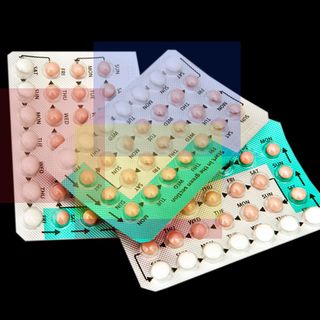Even after washing, traces of dishwashing liquid get left behind on our dishes, enter our bodies with every next meal and can negatively affect the gut microbiome and hence, overallhealth, according to recent research out of the University of Chicago. The gut microbiome is 4-plus pounds of useful symbiotic bacteria, yeast, and viruses lining the gastrointestinal tract in the human body.
Many dishwashing liquids contain triclosan, an antibacterial and antifungal compound. In experiments on fish, the study found that the chemical changed the population of gut bacteria. This reversed itself after the triclosan was removed. In another experiment on biofilms — a group of microorganisms that stick to each other and to a surface — the microbiome remained altered even after the exposure was eliminated.
Alyson Yee and Jack Gilbert, the study’s authors, linked changes like these to a “wide array of diseases and metabolic disorders, including obesity, inflammatory bowel disease, irritable bowel syndrome, and behavioral and metabolic disorders,” and suggest these effects might be more harmful to fetuses and newborns than adults. Triclosan’s extensive usage in hospitals has also led to the development of MRSA — multi-antibiotic resistant Staphylococcus aureus.
“Future research should explore the role of dose, timing, and route of triclosan exposure,” Yee and Gilbert add. “Humans are exposed to triclosan transiently and in small doses, but the presence of triclosan in surface, ground and drinking water indicates its potential to persist and accumulate in the environment.”
Related on The Swaddle:
Gut Bacteria: An Unsexy Trend Hiding Big New Insights
Apart from what the study found about triclosan, dishwashing liquids also contain a host of other chemicals such as phthalates, which this study has also shown to affect the microbiome of various animals, leading researchers to conclude phthalates have the potential to affect the human microbiome, too. Previous research Early research also shows phthalate exposure may be associated with diabetes and insulin resistance, breast cancer, obesity,[36] metabolic disorders, and immune function.
Further research has also shown that harsh chemical surfactants in dishwashing liquids that are responsible for breaking down oil and grease can potentially have damaging consequences to the delicate mucous linings of humans’ gastrointestinal tract.
With this, dishwashing liquid joins the growing list of factors that can damage the gut microbiome: antibiotics and other medications, too much sugar, not enough fiber, stress, and chemicals present in our food.
Switching to 100% plant- and mineral-based dishwashing liquids and powders, and handwashing dishes are good ways to circumvent these problems. And, even with those measures, a light hand on the amount of cleansing agent utilized per wash could go a long way.




